Experts share their thoughts on China-US trade friction
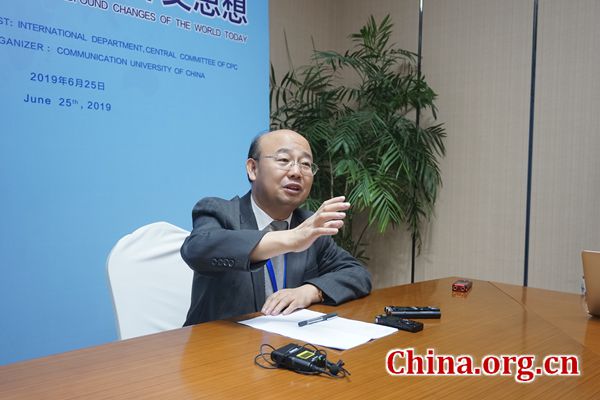
Experts expressed their hope for a solution to the trade friction between China and the United States at the 29th Wanshou Forum held in Beijing's Communication University of China on June 25.
"To solve the trade conflicts between the two countries, we need to sort out the rules both parties shall observe," said Luan Jianzhang, an international relations expert who serves as director general of the Research Office of the International Department of the Communist Party of China Central Committee.
According to Luan, the rules should be multilateral, and follow the principle of achieving shared growth through discussion and collaboration. He hoped that the upcoming G20 summit in Osaka should send a strong signal of supporting multilateralism and opposing unilateralism.
"G20 summit is an occasion where world leaders discuss rule-based global governance, and the US-China trade friction can be understood in the context of global governance because it is largely about what kinds of rules and norms should be observed while trading with each other," noted Luan.
"We sincerely wish a deal can be struck but if not, China is not afraid of a trade friction because it believes in economic globalization, an irresistible trend."
Luan's words were echoed by Shmelev Boris, director of the Center of the Political Studies in the Institute of the Economy, Russian Academy of Sciences.
"Improving international laws and rules and strictly observing them are essential to tackle the challenges facing us today and to maintain stability," Boris said.
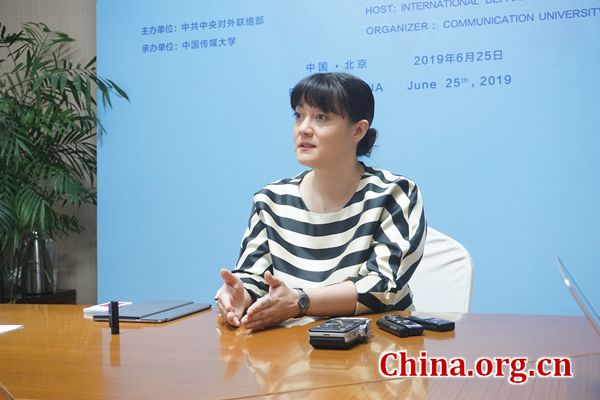
Sarah Mei Li Owen, chair of Chinese for Labour, stated that it's good to see China standing up to isolationist views around trade and immigration from America under President Trump.
"No one prospers from a trade war, I hope there is a solution," she said.
Owen is also a political officer for GMB Union and represents GMB on the Labour Party's ruling body, the National Executive Committee.
Responding to a question whether the US-China trade friction provides opportunities for Mexico, Ricardo Anaya Cortes, former leader of the PAN Parliamentary Group and presidential candidate of Mexico, stressed that war is never an opportunity.
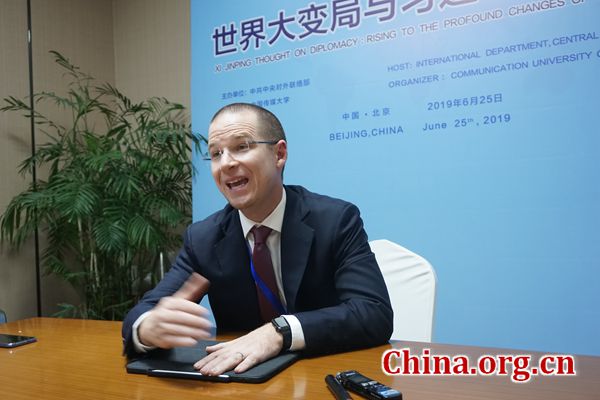
"That would be very short-term thinking to believe if there is trade war between China and the United States, Mexico as a manufacturing exporter will benefit. In the long run, we all lose when the two largest economies in the globe are in dispute."
He reiterated that relations should be respectful between countries and there should be no room for bullying. "All countries that believe in openness and free trade should speak out."
And scholars from ASEAN countries did speak out during the forum.
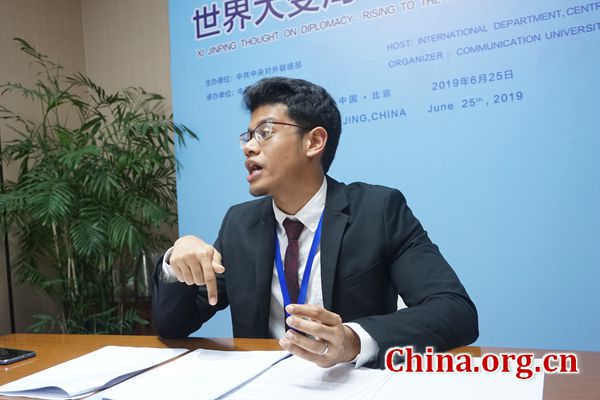
Benedict Weerasena Samarasema, an economist from Malaysia's House of Trust, said that ASEAN countries have warmed up to China and don't see the country as imposing its diplomacy. He pointed out that Malaysian Prime Minister Mahathir Mohamad recently voiced his support for Huawei and its 5G technology and shared the idea that "we will prosper together."
Samarasema analyzed that the United States has underestimated China's economic resilience while overestimated its own economic preeminence. With China further cooperating with ASEAN countries in the Belt and Road Initiative for example, China's economy will be affected but not as much as the United States hopes it would be in the long run.
"I think China is not as vulnerable as the United States," he asserted, "China has proved that nothing can shake the nation."
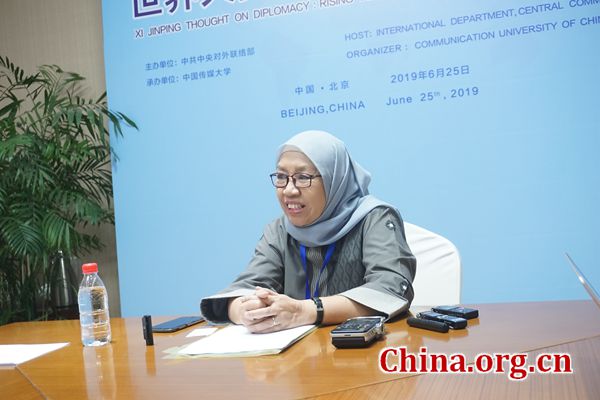
Indonesian lecturer Yuli Mumpuni Widarso said that both China and the United States are main trading partners for her country. "We wish the meeting between the leaders of the two countries at the sidelines of the G20 Summit a success, because we all suffer from this trade war."
"Both leaders have realized that the world community is waiting for the best solution. We don't want to suffer any longer," she added.
About 100 experts from across the world discussed how to respond to the profound changes of today's world at the Wanshou Forum.







